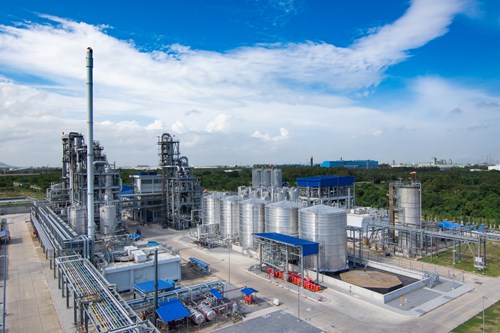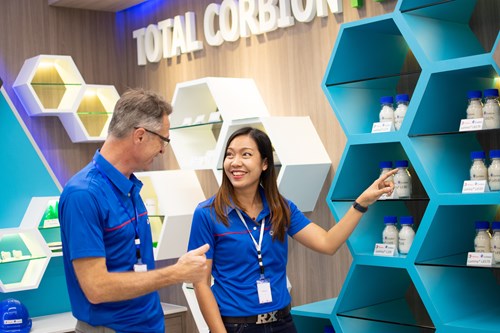A joint venture between Total, the French multinational oil and gas company, and Corbion, a Dutch food and biochemicals company headquartered in Amsterdam, has established a new bioplastics plant in Rayong, Thailand.
The plant has already produced Luminy PLA resins and once fully operation will be capable of producing 75,000 of PLA per year. In addition to 3D printing filament the PLA produced by Total Corbion will be used to for applications including packaging, consumer goods, fibers and automotive products.
The Luminy PLA resin range is manufactured from a renewable, non-GMO sugarcane sourced locally in Thailand. According to the company the PLA plant will, “leverage on the integration with its Lactide plant, the monomer required for the production of PLA, that has simultaneously been expanded to 100,000 tons per year production capacity. Furthermore, the 1,000 tons per year PLA pilot plant, which has been operational since the end of 2017, is located on the same site and will be used for product development.”

World scale PLA production
Stephane Dion, CEO of Total Corbion, “The start-up of this state-of-the-art plant establishes Total Corbion PLA as a world-scale PLA bioplastic producer, ideally located to serve growing markets from Asia Pacific to Europe and the Americas”
“The subsequent increase in global PLA capacity will enable manufacturers and brand owners to move into the circular economy and produce biobased products with lower carbon footprints and multiple end of life options.”
Bernard Pinatel, President Refining & Chemicals at Total, said, “I’m very pleased that the joint venture has started-up the second-largest PLA bioplastics plant in the world. This achievement is fully in line with our strategy, to expand in petrochemicals and, at the same time, innovate in low-carbon solutions. Bioplastics are a great complement to our more traditional petrochemicals products to meet the rising demand for polymers while contributing towards reducing end-of-life concerns”

The start-up of the facility in Thailand was heralded as a major milestone in the bioplastics market. By adding this new production capability , “the global production of PLA bioplastics will increase by almost 50%, to 240,000 tons per year,” according to Total Corbion. The company notes that within the polymer market PLA is experiencing high demand with an estimated annual growth rate of 10% to 15%.
Tjerk de Ruiter, CEO at Corbion, said, “The successful start-up of this state-of-the-art PLA plant is the result of impressive teamwork by many. This is good news for consumers and producers who want to make a conscious choice to improve their carbon footprint and make their contribution to a circular economy. A world of innovation and business opportunities has opened up while contributing to a better world”
For more of the latest 3D printing news subscribe to the 3D Printing Industry newsletter and follow us on Twitter, and Facebook.
Pursuing a career in additive manufacturing or looking for skilled individuals in the field? Search and post 3D Printing Jobs for opportunities and new talent across engineering, marketing, sales and more.


